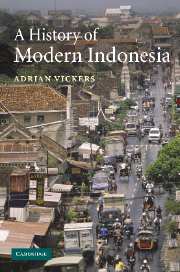Book contents
- Frontmatter
- Contents
- List of figures
- List of maps
- Acknowledgements
- A note on spelling, pronunciation and names
- Chronology
- Introduction
- 1 Our colonial soil
- 2 Cultures of the countryside
- 3 ‘To assail the colonial machine’
- 4 The Revolution
- 5 Living in the atomic age
- 6 From Old to New Orders
- 7 Terror and development in happy land
- 8 Age of globalisation, age of crisis
- Biographies of key figures
- Abbreviations and glossary
- Notes
- Bibliography
- Index
- LIST OF MODERN HISTORIES
1 - Our colonial soil
Published online by Cambridge University Press: 05 June 2012
- Frontmatter
- Contents
- List of figures
- List of maps
- Acknowledgements
- A note on spelling, pronunciation and names
- Chronology
- Introduction
- 1 Our colonial soil
- 2 Cultures of the countryside
- 3 ‘To assail the colonial machine’
- 4 The Revolution
- 5 Living in the atomic age
- 6 From Old to New Orders
- 7 Terror and development in happy land
- 8 Age of globalisation, age of crisis
- Biographies of key figures
- Abbreviations and glossary
- Notes
- Bibliography
- Index
- LIST OF MODERN HISTORIES
Summary
Having spent myself the greatest and the best part of my life in the Dutch colonial service and having pawned my heart to the welfare of the Dutch East Indies and the people over there …
(former Governor General Jonkheer Mr A. C. D. de Graeff)Before 1945 there was no Indonesia, but rather a collection of islands spread across the Equator that the Dutch made into the Netherlands East Indies. In 1898 a new queen, Wilhelmina, ascended the throne of the Kingdom of the Netherlands. Wilhelmina's tropical empire, known simply as the Indies, numbered more than 28 million subjects on the prime island of Java, and some 7 million others on what were referred to as the Outer Islands, although not all of these as yet were under Dutch rule. Although she ruled for the rest of the colonial period, Wilhelmina never visited her colony. She never experienced the sudden monsoonal downpours, the green landscapes dominated by volcanoes, or the spicy heat, but every year her birthday was celebrated there, with night markets and festive arches.
What was it like for the Dutch, ruling that vast archipelago of Indonesia? The Dutch made up a special, upper social class of the Indies – soldiers, administrators, managers, teachers, pioneers. They lived linked to, and yet separate from, their native subjects. From 1900 to 1942 these colonial rulers worked to make the islands into a single, prosperous colony, and for that they expected gratitude.
- Type
- Chapter
- Information
- A History of Modern Indonesia , pp. 9 - 32Publisher: Cambridge University PressPrint publication year: 2005



